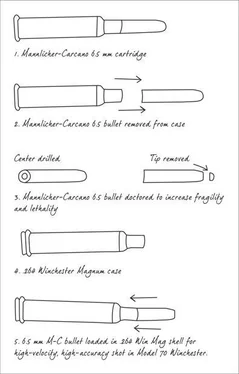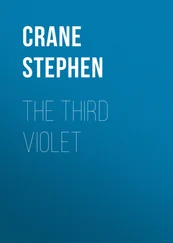Stephen Hunter - The Third Bullet
Здесь есть возможность читать онлайн «Stephen Hunter - The Third Bullet» весь текст электронной книги совершенно бесплатно (целиком полную версию без сокращений). В некоторых случаях можно слушать аудио, скачать через торрент в формате fb2 и присутствует краткое содержание. Жанр: Триллер, на английском языке. Описание произведения, (предисловие) а так же отзывы посетителей доступны на портале библиотеки ЛибКат.
- Название:The Third Bullet
- Автор:
- Жанр:
- Год:неизвестен
- ISBN:нет данных
- Рейтинг книги:5 / 5. Голосов: 1
-
Избранное:Добавить в избранное
- Отзывы:
-
Ваша оценка:
- 100
- 1
- 2
- 3
- 4
- 5
The Third Bullet: краткое содержание, описание и аннотация
Предлагаем к чтению аннотацию, описание, краткое содержание или предисловие (зависит от того, что написал сам автор книги «The Third Bullet»). Если вы не нашли необходимую информацию о книге — напишите в комментариях, мы постараемся отыскать её.
The Third Bullet — читать онлайн бесплатно полную книгу (весь текст) целиком
Ниже представлен текст книги, разбитый по страницам. Система сохранения места последней прочитанной страницы, позволяет с удобством читать онлайн бесплатно книгу «The Third Bullet», без необходимости каждый раз заново искать на чём Вы остановились. Поставьте закладку, и сможете в любой момент перейти на страницу, на которой закончили чтение.
Интервал:
Закладка:
It’s not that we were Democrats, although we probably were. Some of us – that would include young Hugh with the soft face and meek eyes and grown-up pipe – were even liberals. It’s not that we were in any way pro-com. But he did not meekly disappear into the night, as one would have hoped. When he resigned after refusing McNamara’s transfer, all this occurring after a newspaperman exposed his ugliness, he returned to America a kind of hero, like MacArthur, I suppose, though lacking the elegance and poise. He set himself up in his hometown as a speechifying one-man infantry division, riding his notoriety to the max, demanding action from Kennedy, denouncing Kennedy and his minions, supporting segregation, generally raising hell and crowding the administration into postures not sound in the long run. Did he seek power himself and imagine a career in politics? Possibly. At one point he threatened to unify his followers, of whom there were thousands, into a kind of political action force, and that sounded ominous. He was a troubling psychopath with clear fascist tendencies who did not like the Negro or any who supported the Negro’s quest for equality, who loathed “diplomacy” as a solution to Soviet expansion as opposed to “battle,” who would leap to his feet and start singing tearfully whene’er Old Glory was unfurled. He may have petered out when his gadfly act grew tiresome and reporters no longer bothered to cover his stem-winders, but all through the summer of ’63, particularly emboldened by the missed sniper’s shot, he seemed to be everywhere, hammering away, not so much a threat in a political or operational sense but more of a malign presence, clouding the policy debate, pushing Kennedy hard to the right even as Kennedy’s own instincts may have pushed him hard to the right already.
I particularly loathed him. He made anti-communism, to which I had devoted my life, stupid, coarse, loud, ignorant, rabble-rousing, and suspect to the intelligentsia, a particularly fickle audience with fear of fighting deeply ingrained. He would be one more reason for them to withdraw from duty and strength; a brute, a bully, a screamer, a sprayer of saliva. No one with an IQ over 100 seemed to care for him.
There was a deeper issue. It was pure policy, and here I apply the New Criticism and speak no more of the general’s manifold unpleasantries and vulgarities. Stripped of all psycho-historical-stylistic nuances, his sense of anti-communism was inimical to mine, that is, ours. He was macho and wanted to dominate by daring and, if it came, winning a military confrontation. That millions would die in such a conflagration meant nothing to him. His was the iron fist in the iron-glove approach, as it worshipped domination, destruction, and enslavement as the highest, purest form of triumph.
Our gestalt was far different. We feared the big war, the full-theater nuclear exchange, the dark piles of rubble, corpses, and poison air that such a crusade would unleash. We felt that to defeat communism, we had to co-opt the soft left and offer sensible alternatives to the billions of people who yearned for freedom from colonialism, imperialism, and capitalism. We fought surrogate wars, culture wars, if you will. We funded socialist parties all over Europe, we sponsored fashionably lefty lit mags like Encounter to woo the intelligentsia to our more reasonable approach, we promoted American jazz and expressionism as a way of winning the hearts and minds of the world population to our gentler persuasions. If we had to resort to force, it would not be the 24th Division’s five thousand Patton tanks taking on the T-54s in a new, more tragic Kursk on the plains before the Fulda Gap, and not another iteration of Fat Man and Little Boy providing instant genocide to half the world. It would be a coup here, a labor union strike there, at most an assassin’s bullets. We were influencers, nudgers, political engineers, reluctant snipers. We were not soldiers.
“So what’s the problem, Win?” somebody shouted.
“Okay,” said Win, “here’s the problem. Do I A) snitch this guy out to the Dallas police, or B)” – Win let it build, master comedian – “buy him a new box of ammo?”
The place exploded in laughter, as well you might imagine. No one laughed harder than quiet Hugh, leaning against the sofa, nursing a gin and tonic, tamping his pipe, joining heartily in the merriment.
I was aware that I had the answer to Win’s dilemma. I would buy Lee Something Something a new box of ammo.
It was all different in those days. The building was new and smelled of paint and fresh spackle and putty. It had yet to acquire the dinge that old bureaucratic sites acquire, the grease spots where generations of sleepy clerks have rested their heads, the scuff marks on the linoleum, the bathrooms leaky and stinky and stained with God knows what, all the caulking having begun to rot, the light uncertain and sure to go bad when most needed. No, the new campus smelled delicious, seemed in synchronization with the spirit of Camelot, and also symbolized the official putting of the Bay of Pigs, our last scandal, behind us. It was all beige with muted carpeting, and we had definitely entered the miracle age of the fluorescent lighting system, so it was always illuminated in the stark light of scientific truth, which was oddly comforting.
You looked out windows still dustless and smearless and saw green trees everywhere, as the Virginia countryside, cascades of leaf, seemed boundless and lush. In memory, at least, it never rained a lot in Camelot. From some high north-oriented windows, you could see a flash of the broad Potomac, and on a sunny day, as I remember most were, that plate of liquid turned blue itself off the sky overhead. Trees, walks, freshness, ripeness everywhere, cheer and high morale, pep and vim and vigor, hope and audacity, the perfect background for my treachery in the most heinous yet most successful intelligence operation in history, the Earth’s or any other planet’s.
I had to get that transcript and learn who Lee Something Something was. It was not hard to do. A few days into the next work week, I sent Win Stoddard some kind of meaningless though TOP SECRET/EYES ONLY file with a cover note requesting his input on the proposed project. I cannot remember what it was, and I knew that even with the melodramatic stampings on it, Win would routinely stuff it in his desk drawer for a few days before he got around to considering it. I waited a day, then, timing it perfectly, managed to intercept Win on his way to the elevator at 5:04 on a Wednesday afternoon. I could tell by the speed of his gait – I’m not a spy for nothing, you know! – that he was in a hurry.
“Win, say, sorry to trouble you, that report I sent, did you have a chance to look at it?”
“Not yet, Hugh, sorry. This, that, the other thing.”
“I kind of need to get it circulated. Could I have it back and ship it on to the next boy on the list? If Cord calls a meeting on it, I’ll brief you.”
“Sure, Hugh. First thing tomorrow.”
“Damn, I’d like to get it to one of Wisener’s people tonight.”
“Okay, look, I’m in a rush.” He smiled, reached into his pocket, and pulled out his ring of keys. “Here, the little one, it’ll open the drawer right away. Help yourself. You can give me the keys back tomorrow. I’ve got drinks with a senator at the Army-Navy Club, and I’m already behind.”
“Good man,” I said, and I exchanged with him the one secret I will not violate in this account, the Skull and Bones handshake.
As I said, easy, too easy. Security then was a twenty-two-cent hardware lock on a file drawer made of tin-can alloy. No computers, no magnetic striped cards, no monitoring video cameras, nothing in the beige hallways suggesting war or aggression or intelligence, just a fairly messy if broad office that could have housed an insurance company or a newspaper or a driver’s license agency. It had no spy-movie-cliche clubbiness and never did. This was way before the age of computers, and we had not gotten electric typewriters in; everything was on paper, paper was the fuel that we fed into the flames of the Cold War.
Читать дальшеИнтервал:
Закладка:
Похожие книги на «The Third Bullet»
Представляем Вашему вниманию похожие книги на «The Third Bullet» списком для выбора. Мы отобрали схожую по названию и смыслу литературу в надежде предоставить читателям больше вариантов отыскать новые, интересные, ещё непрочитанные произведения.
Обсуждение, отзывы о книге «The Third Bullet» и просто собственные мнения читателей. Оставьте ваши комментарии, напишите, что Вы думаете о произведении, его смысле или главных героях. Укажите что конкретно понравилось, а что нет, и почему Вы так считаете.












